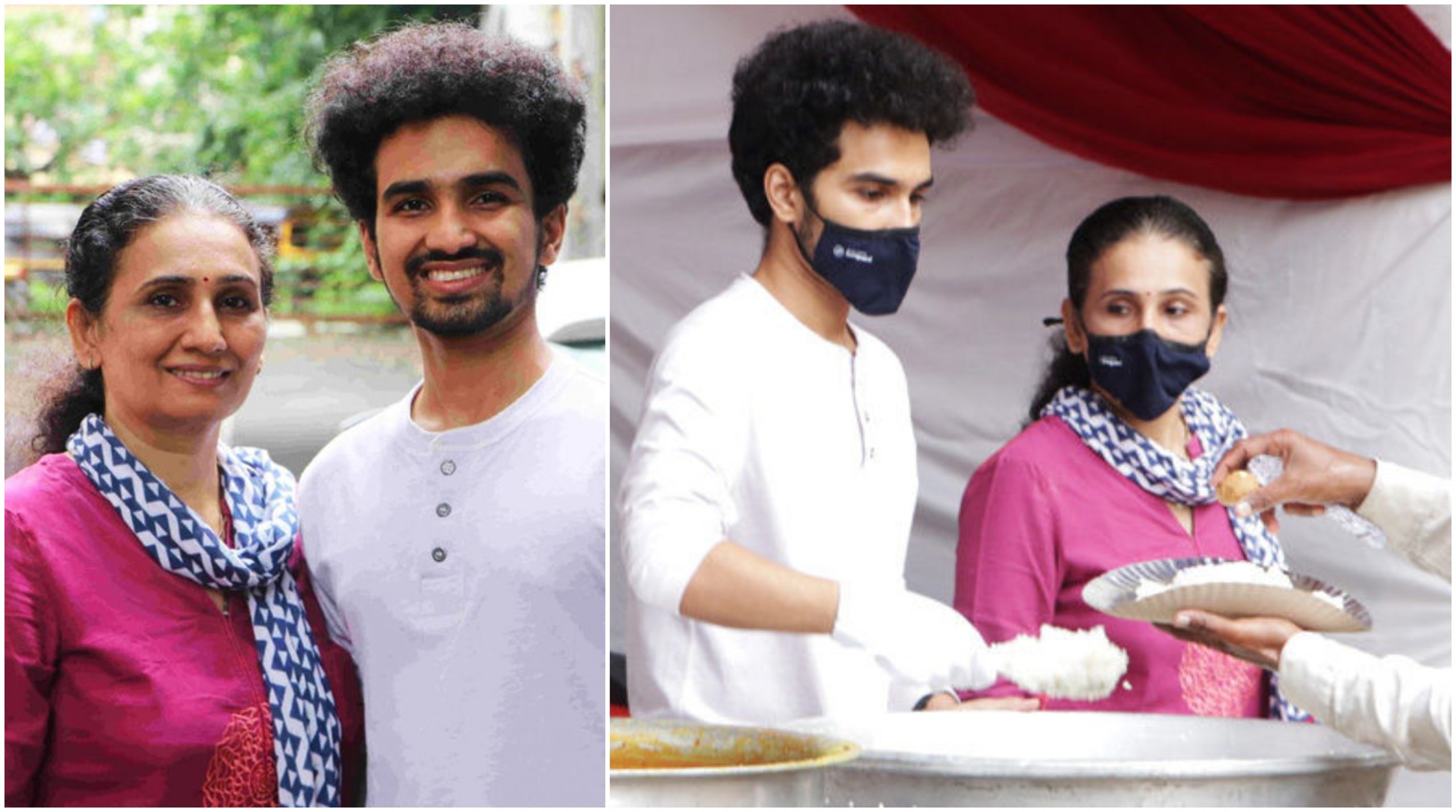Mumbai-based mother-son duo, Heena and Harsh Mandavia, owners of Harsh Thali and Parathas, have been tirelessly running a food drive from their kitchen since the first week of May to help those in need. They have served more than 13,000 meals and fed thousands of migrant workers, women, children and the elderly; groups that have disproportionately suffered under the pan-India lockdown imposed to arrest the spread of COVID-19. Along with meals, they are also serving “immunity booster balls” which is basically a home made nuskha (remedy) to boost immunity.
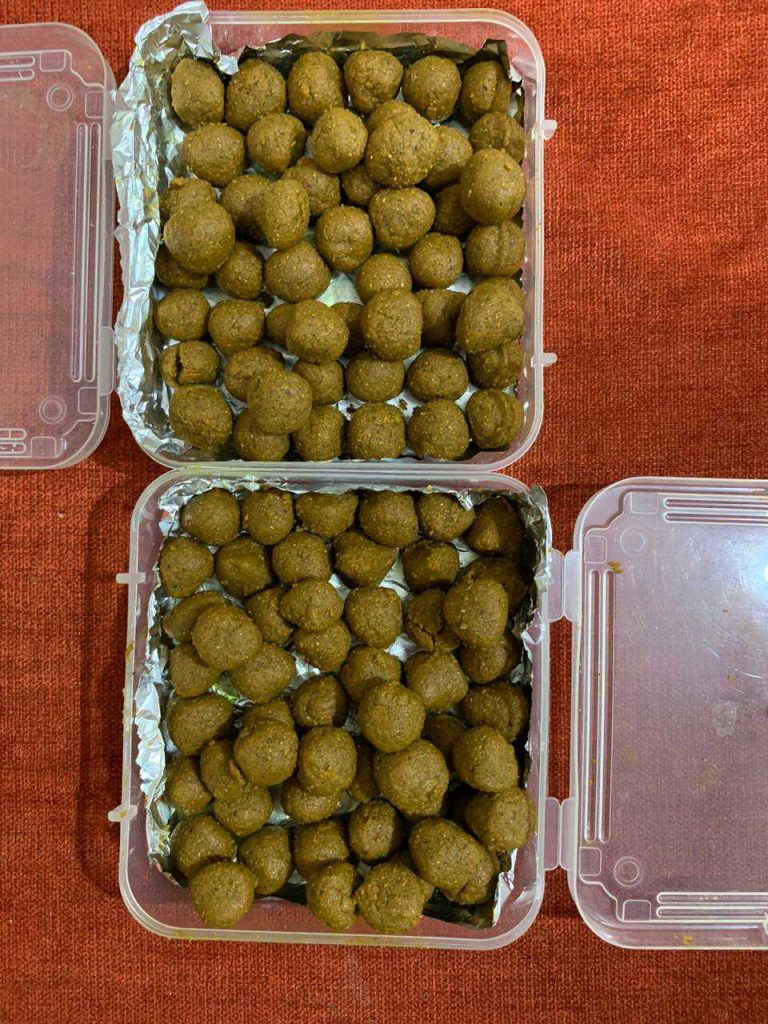
Dubbed by many as COVID warriors, in our conversation with Harsh Mandavia we found out more about the factors that motivated them to conduct the food drive and their plan to continue their initiative as a way of providing a source of livelihood for women in the years to come.
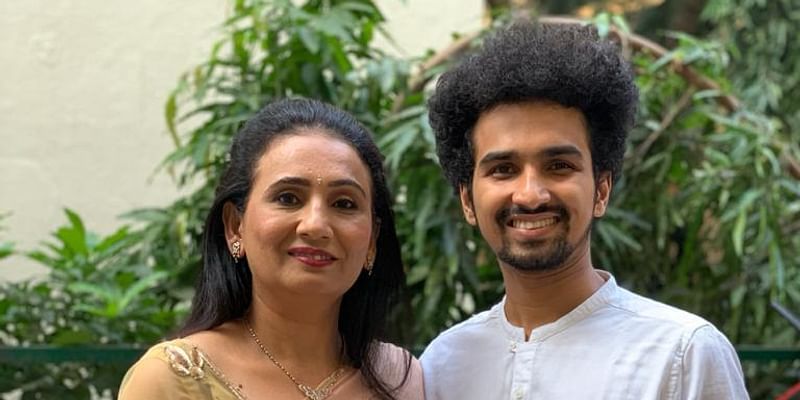
Harsh Thali and Parathas was started by Heena Mandavia, a native of Jamnagar, Gujarat, in the late 1990s after she lost her husband in a tragic road accident. After her husband’s untimely death, the family wanted Heena to move back to their hometown in Gujarat, but she refused to leave Mumbai for the sake of her son’s well-being.
Harsh recalled, “My mother was determined to provide me with good quality education; as a result, she did not want to go back to her hometown.” This was an extremely difficult decision for Heena, since, at that time she did not have a steady source of income. It was after a family friend suggested that she should start a tiffin service that she started laying down the foundation for her future business.
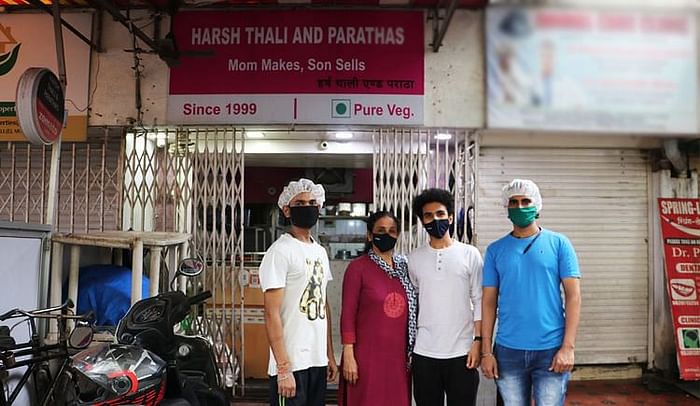
Harsh shared with FII, “The initial days were very difficult. There were times when we didn’t have enough food to eat at home. During those days mom could only provide me with two meals while she herself went hungry.”
He further added, “My mother did not have enough money to pay the fees of my english medium school. Miraculously, however, when my school’s director, Mr. Yogesh Patel found out about my mother’s financial condition he waived off my fees and I never had to pay for school again.”
The second samaritan who assisted Heena in these financially challenging times was one of her customers, Mr Harshad Bhai Shah, who made the first initial investment in her business. The investment helped kick start her business and since then, Harsh Thali and Parathas has not looked back. The woman who owns their shop, Bishani Joshi, also waived off 50% of the rent after realising that they were engaging in a good cause.
After 15 years, when Harsh went to repay his school management and the man who had made the initial investment in their business, both of them told him to give back to the community instead of repaying them.
Mumbai-based mother-son duo, Heena and Harsh Mandavia, owners of Harsh Thali and Parathas, have been tirelessly running a food drive from their kitchen since the first week of May to help those in need. They have fed thousands of migrant workers, women, children and the elderly; groups that have disproportionately suffered under the pan-India lockdown imposed to arrest the spread of COVID-19.
According to Harsh, the food drive that the duo started was essentially a means of giving back to people. He explained, “So many good people helped my mother when we were in need. This realisation has spurred us to continue working for people.” He added, “The food drive is not only feeding the needy but also generating employment for people in the community. Several women who lost their job due to COVID are now working with us.” They have been running their food drive from the donations they receive from ordinary people.
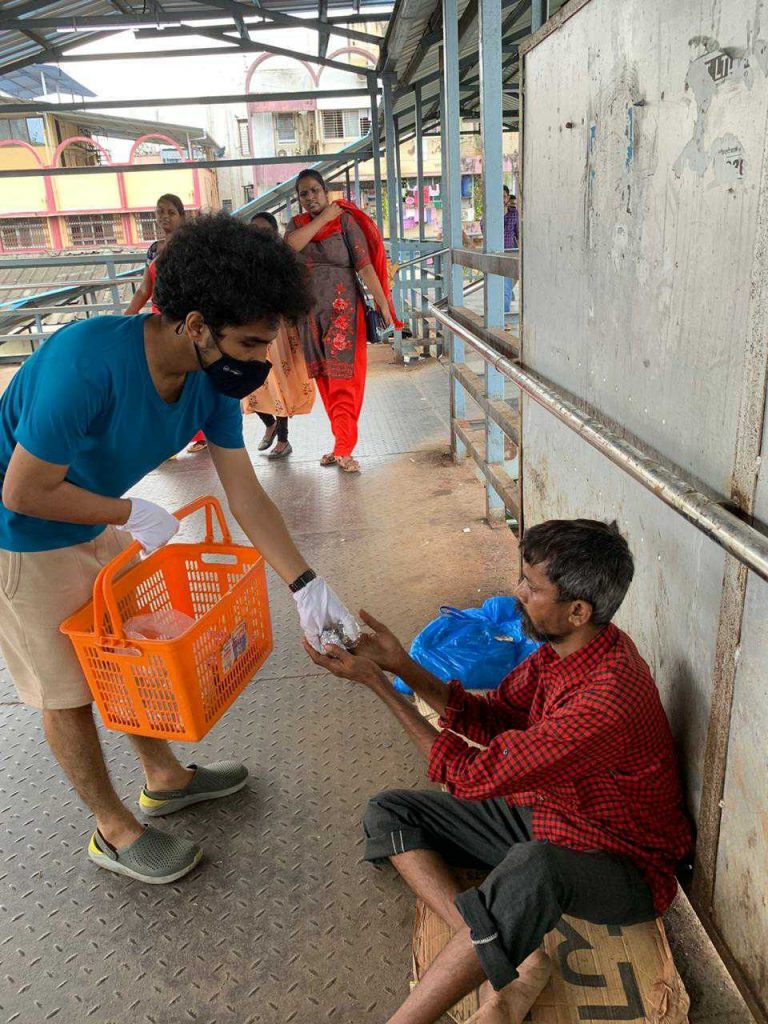
During our conversation with Harsh, he emphasised the role played by their surrounding community members who assisted Heena in establishing her business. The various patriarchal as well as financial challenges that small business owners like Heena Mandavia face could be averted through community support. As a result, the business model governing the food drive, as well as the other commercial activities of Harsh Thali and Parathas, are rooted in the community.
Harsh, who took over his mother’s business in 2015, observed, “When someone donates towards the food drive they are not only helping feed the needy but through their donation, I can ensure that I am able continue employing my staff members.”
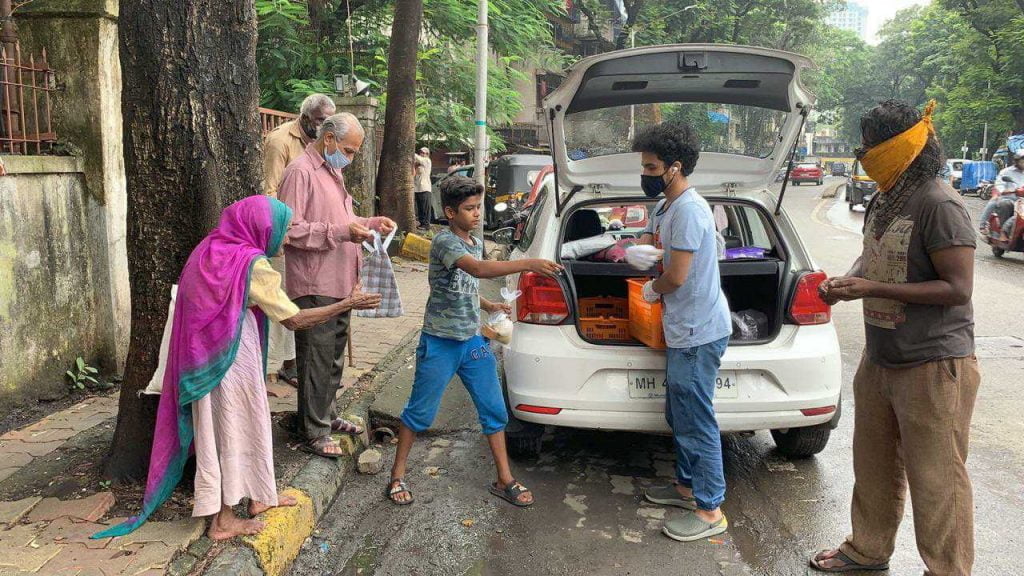
Furthermore, Harsh has been able to employ several women who had previously lost their jobs during the pandemic. The raw materials procured to conduct the food drives are also all sourced from small retailers, “We do not buy our products from big retailers like D Mart that have large turnovers, rather we prefer supporting small businesses.“
At a time, when small businesses headed by women across India are suffering under an ailing economy, the story of Heena and Harsh Mandavia serves as a timely reminder of the need to invest in and support female entrepreneurs. Educating ourselves about the challenges women-led small businesses are going through at the moment could be the first step towards finding and demanding better ways to support their work.
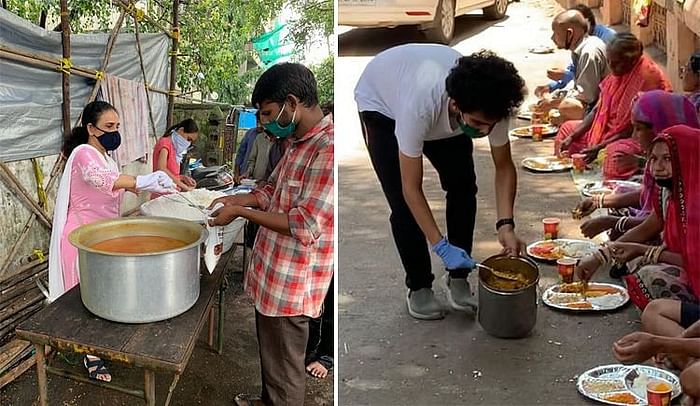
While talking about the future of the food drives, Harsh shared, “We plan on continuing the drives even after the pandemic. Many businesses have come forward and shown interest in donating to our initiative as part of their Corporate Social Responsibility. Such assistance would also help us provide employment opportunities to more and more women.”
Due to paucity of time, we could not get the opportunity to directly get in touch with Ms Heena Mandavia but Harsh promptly added during our conversation the role his mother played in spearheading the movement. He told FII, “No amount of donations could have made the food drive successful if my mother did not start the kitchen. It is because of her efforts that today we not only have a successful business but are also giving back to the community.“
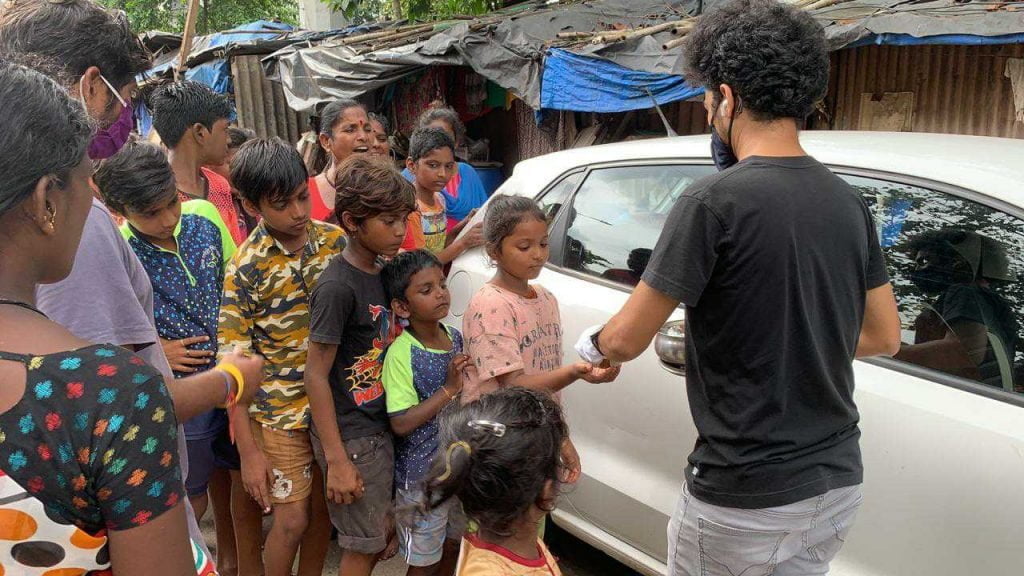
At a time, when small businesses headed by women across India are suffering under an ailing economy, the story of Heena and Harsh Mandavia serves as a timely reminder of the need to invest in and support female entrepreneurs. Educating ourselves about the challenges women-led small businesses are going through at the moment could be the first step towards finding and demanding better ways to support their work. It is our hope that the following resources will help our readers gain a better sense of the struggles of self-employed women entrepreneurs in India.
Also read: The Market For False COVID-19 Certificates Rise As Neo-Liberal Economies Fail,…
In order to know more about how you can contribute financially to the food drives, you can reach out to Harsh on Instagram. You can also support the initiative by sharing their efforts on your social media.
Additional References
About the author(s)
Pritha has recently finished her Master's in Women's Studies from Tata Institute of Social Sciences, Mumbai. Academically, she is keenly interested in issues of reproductive justice, crip theory, and contemporary feminist activism. In her free time, she loves to paint with watercolours and watch art tutorials.
